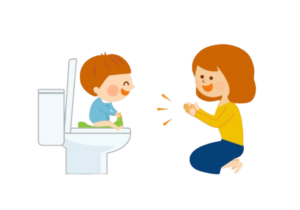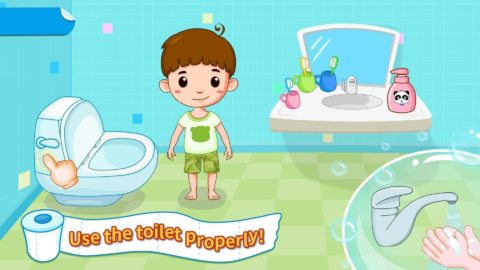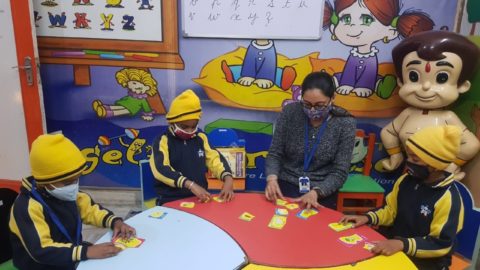If toilet training isn’t approached positively and with patience, a child might develop anxiety, low self-esteem, and difficulty with independence and self-control, potentially leading to toileting problems and behavioral issues later in life.

Here’s a more detailed look at the potential personality impacts:
Negative Impacts of Unhealthy Toilet Training:

Anxiety and Fear:
A harsh or rushed toilet training experience can lead to a child associating the toilet with
negative emotions, potentially causing anxiety or fear around toileting.
Low Self-Esteem and Shame:
If a child is punished or ridiculed for accidents, they may develop feelings of shame and low self-esteem, especially if they feel they are not meeting parental expectations.

Difficulty with Independence and Self- Control:
A negative toilet training experience can hinder a child’s development of independence and self-control, as they may feel pressured or controlled in this important developmental stage.
Toileting Problems:
Children who are forced or rushed through toilet training may develop toileting problems like encopresis (difficulty with bowel movements) or enuresis (bedwetting).

Behavioral Issues:
In some cases, a negative toilet training experience can contribute to other behavioral problems, such as tantrums, aggression, or difficulty with discipline.
Psychological Issues:
In rare cases, severe negative experiences during toilet training can contribute to more serious psychological issues, such as anxiety disorders or attachment difficulties.
Regression:
If a child is stressed or anxious, they may regress to earlier behaviors, such as wetting the bed or refusing to use the toilet.

Why a Positive Approach is Crucial:
Promotes Independence and Self-Mastery: A positive approach allows children to develop a sense of independence and self-mastery as they learn to control their bodily functions.
Builds Confidence and Self-Esteem:
Praising and acknowledging successes during toilet training can boost a child’s confidence and self-esteem.
Reduces Stress and Anxiety:
A calm and supportive environment can help reduce stress and anxiety associated with toilet training, making the process easier for both the child and the parent.

Fosters a Positive Relationship:
A positive approach to toilet training can strengthen the parent-child relationship by promoting trust and cooperation.









